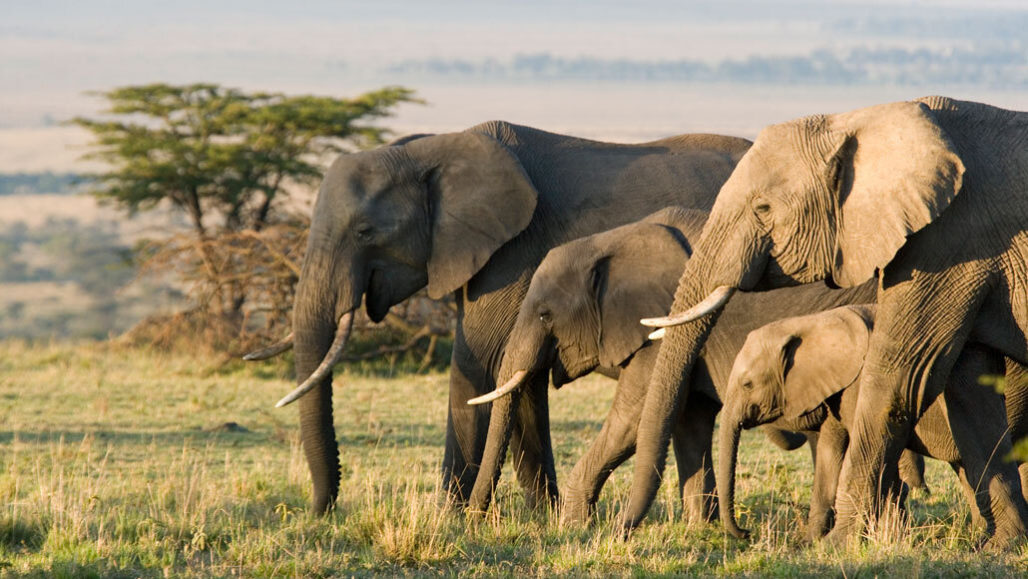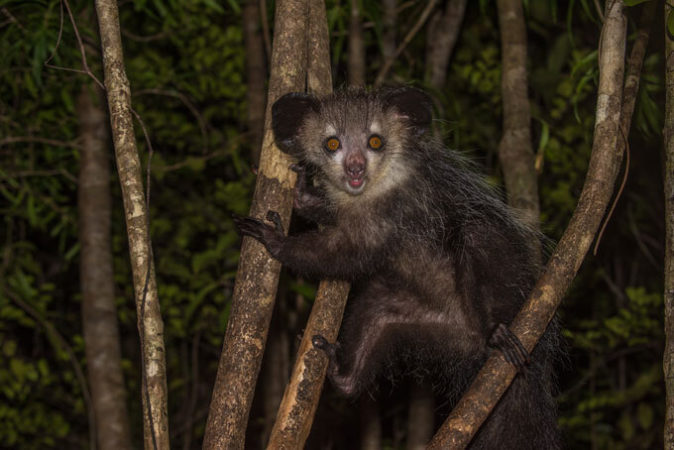Why elephants and armadillos might easily get drunk
Differences in a gene for breaking down alcohol might help to explain which mammals can get tipsy

A new genetic study suggests that elephants could have a low tolerance for alcohol. The finding reopens a long-running debate over whether the animals ever get drunk.
Andrew Linscott/E+/Getty Images Plus
By Susan Milius
Stories of drunken elephants go back more than a century. Supposedly the animals eat fermented fruit and become tipsy. Scientists, though, were skeptical that such large animals could eat enough fruit to get drunk. Now comes new evidence that the myth may be grounded in truth. And it’s all thanks to a gene mutation.
The ADH7 gene produces a protein that helps to break down ethyl alcohol. It’s also known as ethanol, the type of alcohol that can make someone drunk. Elephants are one of the creatures affected by a breakdown of this gene, the new study finds. Such a mutation evolved at least 10 times in mammal evolution. Inheriting that dysfunctional gene might make it harder for elephants’ bodies to break down ethanol, says Mareike Janiak. She’s a molecular anthropologist. She works at the University of Calgary in Canada.
Janiak and her colleagues didn’t look at all the genes needed to break down ethanol. But the failure of this important one might allow ethanol to build up more easily in these animals’ blood. Janiak and colleagues reported this April 29 in Biology Letters.
The study identified other animals as also being potentially easy drunks. They include narwhals, horses and guinea pigs. These animals probably don’t binge on sugary fruit and nectar that creates ethanol. Elephants, however, will feast on fruit. The new study reopens the long-running debate over whether elephants truly get tipsy gorging on marula fruit. That’s a relative of mangoes.
Drunken creatures
Descriptions of elephants behaving oddly after binging on overripe fruit go back at least to 1875, Janiak says. Later, elephants were given a taste test. They willingly drank troughs of water spiked with ethanol. After drinking, the animals swayed more when moving. They also seemed more aggressive, observers reported.
Yet in 2006, scientists attacked the notion of elephant drunkenness as “a myth.” Yes, African elephants may feast on fallen, fermenting marula fruit. But the animals would have to eat an enormous amount at one time to get a buzz. They could not physically do that, the researchers calculated. But their calculation had been based on data on how the human body works. The new insight that elephants’ ADH7 gene doesn’t work suggests they might a lower tolerance for alcohol.
It wasn’t elephants, though, that inspired the new work. It was tree shrews.
These look like “cute squirrels with pointed noses,” says senior author Amanda Melin. She’s a biological anthropologist also at Calgary. Tree shrews have a huge tolerance for alcohol. Concentrations of ethanol that would make a human drunk apparently don’t phase these critters. Melin, Janiak and their colleagues decided to survey all of the mammal genetic information that they could find. Their goal was to indirectly assess how animals’ responses to alcohol might vary.
The researchers looked at genetic data on 79 species. ADH7 has lost its function in 10 separate spots on the mammal family tree, they found. These ethanol-susceptible twigs sprout quite different animals. They include elephants, armadillos, rhinos, beavers and cattle.

Humans and nonhuman African primates have a different ADH7 mutation. It renders their gene some 40 times better at dismantling ethanol than a typical version. Aye-ayes are primates with diets rich in fruit and nectar. They have independently evolved the same trick. What gives tree shrews their drinking superpower, however, remains a mystery. They don’t have the same efficient gene.
Finding the gene dysfunction in the African elephant, however, raises questions about the old myth. The gene would slow the rate at which elephants can clear ethanol from their bodies. That could allow an elephant to get a buzz from eating a smaller amount of fermented fruit, Melin says.
Phyllis Lee has been watching elephants in Kenya’s Amboseli National Park since 1982. This behavioral ecologist is now director of science for Amboseli Trust for Elephants. “In my youth, we tried to brew a form of maize beer (we were desperate), and the elephants loved to drink it,” she says. She does not take sides in the myth debate. But she muses about the “huge liver” of elephants. That big liver would have at least some detoxifying power.
“I never saw one that was tipsy,” Lee says. However, that home brew “didn’t do much for us puny humans either.”







